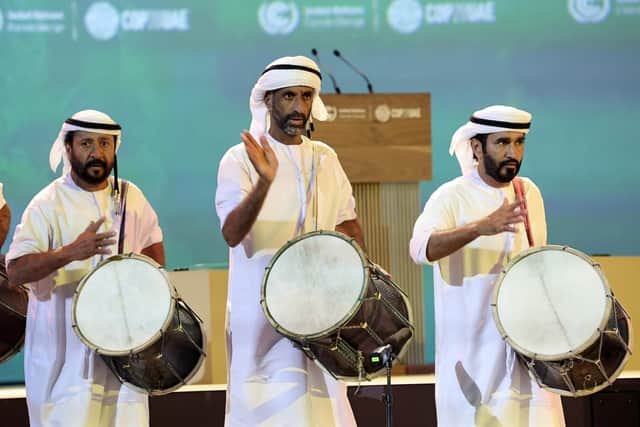Children’s imagination could be key to solving climate crisis - Vishanth Weerakkody & Kamran Mahroof
School children might not be able to tell you about kilotons of carbon dioxide or how quickly the use of fossil fuels can be reduced, but their views on how to solve the climate crisis aren't hindered by the sort of technicalities that preoccupy governments and thank goodness for that.
Instead, their young minds are free to conjure up solutions from their imaginations, and they are often very practical ideas that really could work - with a little help of course.
Advertisement
Hide AdAdvertisement
Hide AdIn the United Arab Emirates, where Cop28 was held this month, more than 100 school children aged between 11 and 17, from 20 schools, have been turning their attention to climate solutions through a Sustainability Challenge competition hosted by the University of Bradford. In groups of three to five, they were invited to research and propose solutions and innovative ideas to deal with 10 Grand Sustainability challenges, including climate change, green energy, food security, clean water and sanitation, and protecting natural habitats and wildlife.


Over a six-week period, from mid-October to the end of November, academics from the University provided mentoring support to the pupils before they presented their solutions during Cop28 to a judging panel of seven experts, including representatives from the United Nations Development Programme, the World Wide Fund for Nature (WWF) and global corporations such as Google.
The winning projects were then showcased in Dubai, for the latest annual climate conference, for which the University of Bradford has held official observer status since 2021.
The innovative ideas the pupils came up with were exemplary. One group suggested using artificial intelligence to work out the exact quantity of water an individual needs for a shower to cut down on water usage. Another group was struck by the idea of light pollution, telling us it was difficult to see the stars at night in Dubai because all the buildings were lit up. They came up with an idea for automatic switch-offs for set amounts of time during the middle of the night.
Advertisement
Hide AdAdvertisement
Hide AdThese children, with their bright inquiring minds, suggested urban vertical farming, installing production right in the heart of cities.
Another suggestion that impressed the judges was upcycling clothes for children. It was refreshing to hear these young people prioritising the planet rather than fast fashion, particularly in Dubai where there is so much wealth and commercialisation. It made us feel really hopeful for the future.
Our experience with the pupils in Dubai has made us want to repeat the challenge for local schools in West Yorkshire through a Sustainability Challenge Competition for School Children in Bradford.
We want to hear about the amazing and innovative ideas children in the region can come up with for the global sustainability problems, be it climate change, food security, or resource depletion that we are facing today.
Advertisement
Hide AdAdvertisement
Hide AdWho knows. Maybe Rishi Sunak could get some ideas from them.
Professor Vishanth Weerakkody, is associate pro vice-chancellor for Global Engagement and Partnerships and Dr Kamran Mahroof is associate professor.
Comment Guidelines
National World encourages reader discussion on our stories. User feedback, insights and back-and-forth exchanges add a rich layer of context to reporting. Please review our Community Guidelines before commenting.